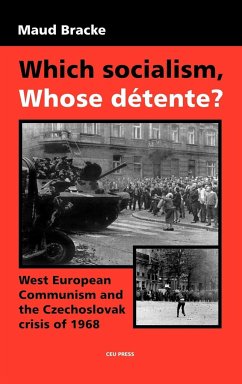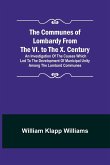This study analyzes the impact of the Czechoslovak crisis of 1968-1969 on the two major communist parties in the West: the Italian and French ones. Discusses the central strategic and ideological tensions which these parties needed to deal with: domestic belonging versus allegiance to the world communist movement, doctrinal orthodoxy in a context of rapid societal changes, and the question of revolution and reform. These key problems were situated in different contexts: the crisis in the "world communist movement" after 1956 and the Sino-Soviet rift, socio-economic modernization and political radicalization in Western Europe, and the shift from Cold War to early détente on the European continent. The research for this work is based on the study of a large collection of recently released primary sources, particularly, the internal records of various communist parties in Europe.
Hinweis: Dieser Artikel kann nur an eine deutsche Lieferadresse ausgeliefert werden.
Hinweis: Dieser Artikel kann nur an eine deutsche Lieferadresse ausgeliefert werden.








